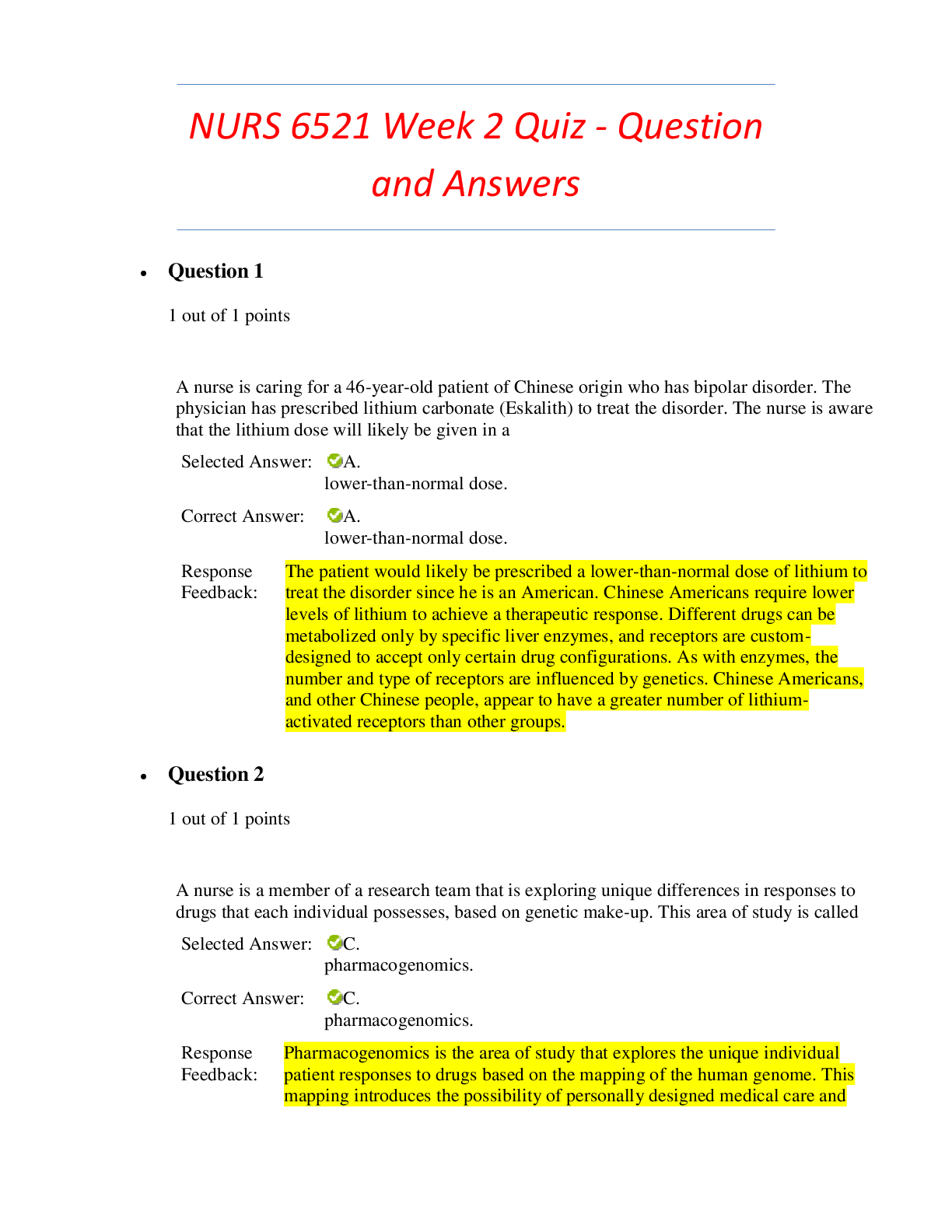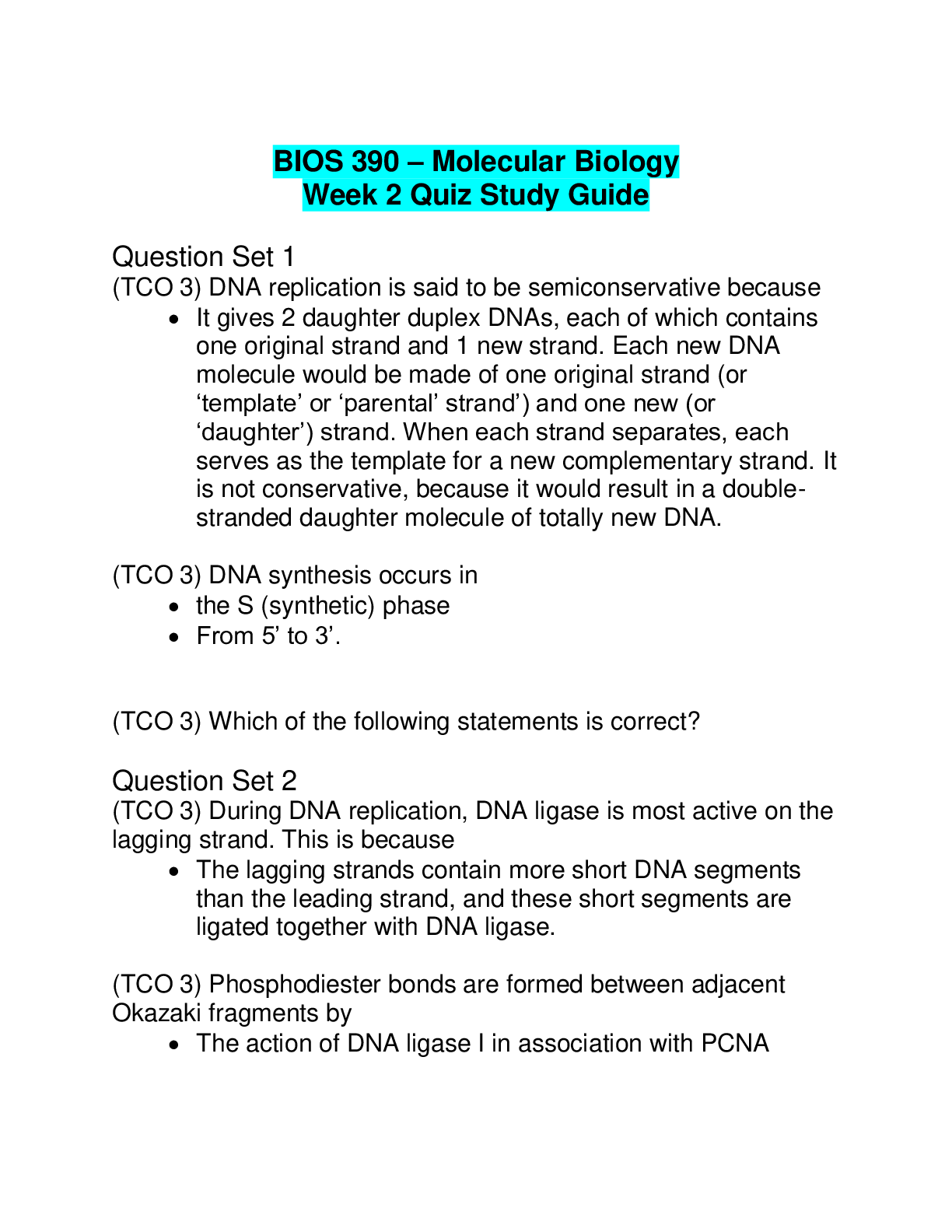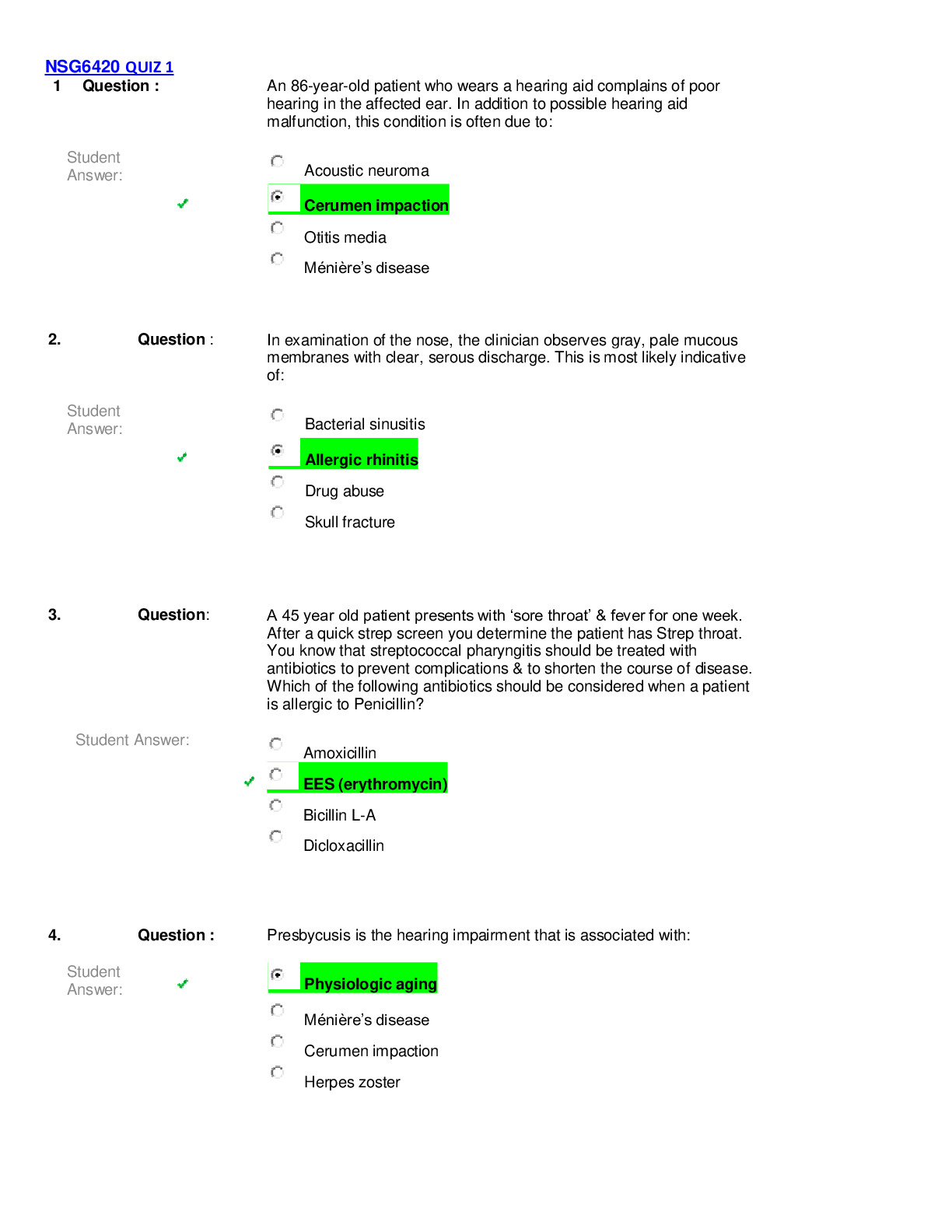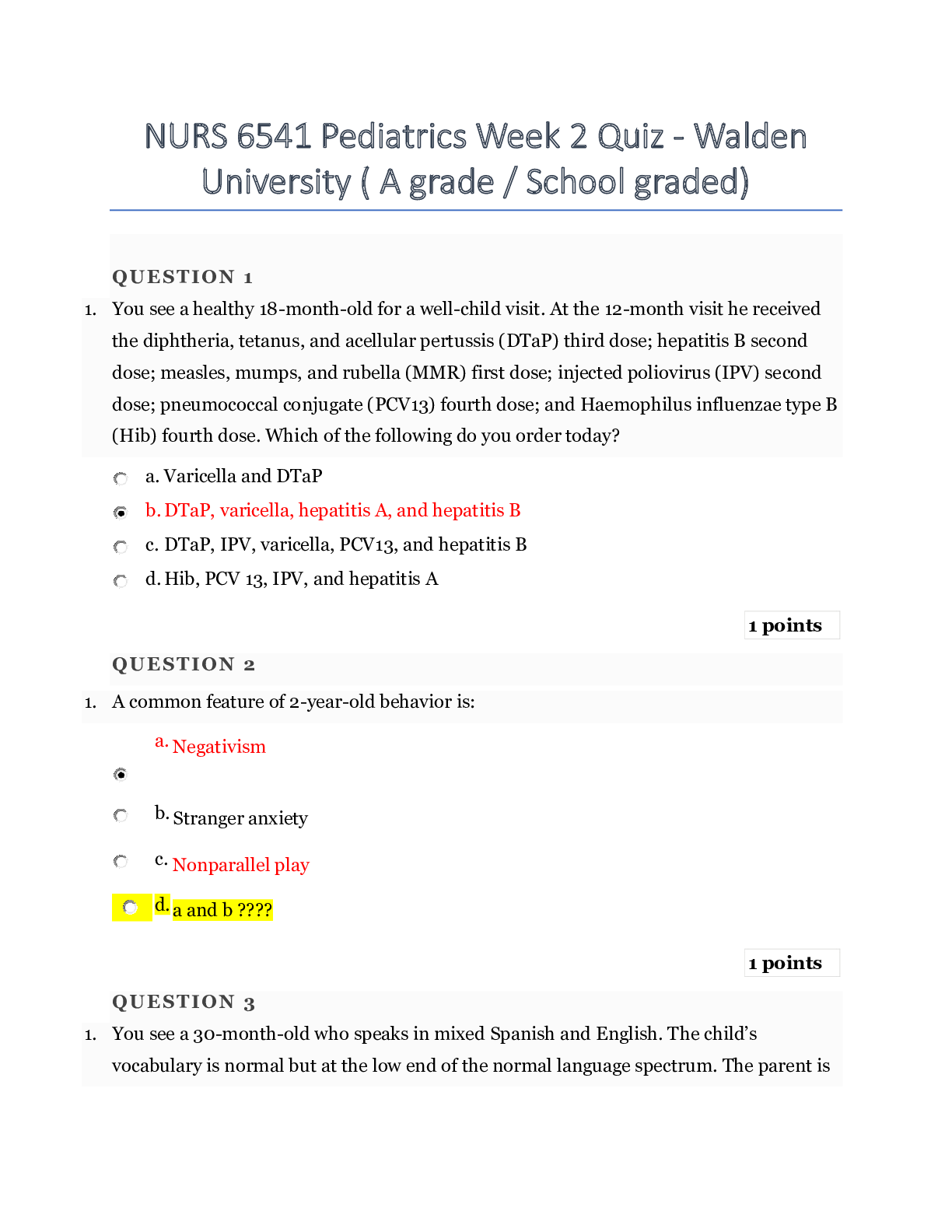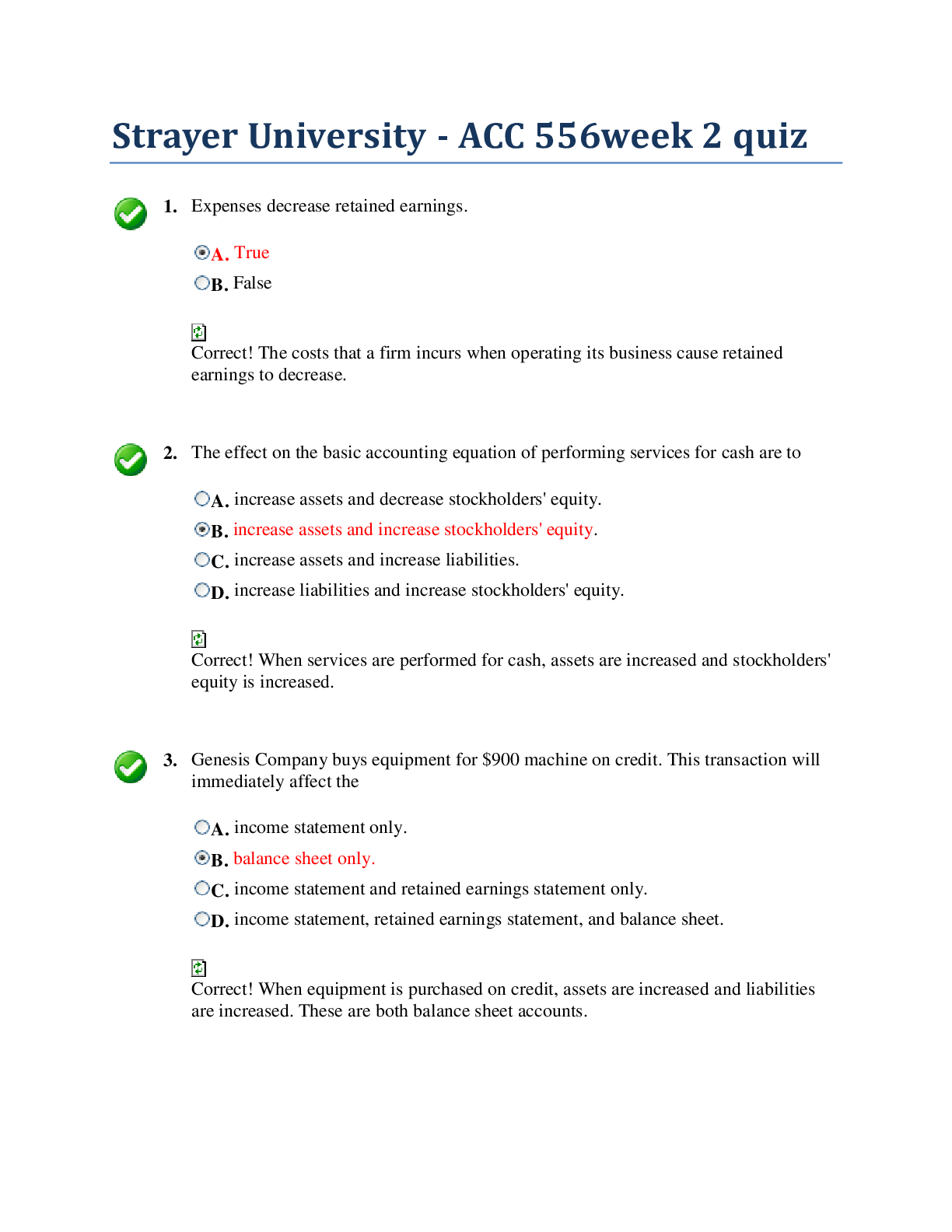*NURSING > QUESTIONS & ANSWERS > Chamberlain College of Nursing NR 507 Advanced Pathophysiology Week 2 Quiz (All)
Chamberlain College of Nursing NR 507 Advanced Pathophysiology Week 2 Quiz
Document Content and Description Below
Advanced Pathophysiology Week 2 Quiz Question 1 2 / 2 pts Which are indications of dehydration? Question 2 2 / 2 pts At the arterial end of capillaries, fluid moves from the intravascular spac... e into the interstitial space because the Question 3 2 / 2 pts Which enzyme is secreted by the juxtaglomerular cells of the kidney when circulating blood volume is reduced? Question 4 2 / 2 pts In hyperkalemia, cardiac rhythm changes are a direct result of Question 5 2 / 2 pts Why are infants susceptible to significant losses in total body water (TBW)? Because they are unable communicate adequately when they are thirsty Because more than half of an infant’s body weight is water Question 6 2 / 2 pts Physiologic pH is maintained around 7.4 because bicarbonate (HCO3) and carbonic acid (H2CO3) exist in a ratio of Question 7 2 / 2 pts How does the loss of chloride during vomiting cause metabolic alkalosis? Loss of chloride causes hydrogen to move into the cell and exchange with potassium to maintain cation balance. Question 8 2 / 2 pts Which of the following is a true statement? Question 9 2 / 2 pts _____ is a fulminant form of respiratory failure characterized by acute lung inflammation and diffuse alveolocapillary injury. Question 10 2 / 2 pts Clinical manifestations that include unexplained weight loss, dyspnea on exertion, use of accessory muscles, and tachypnea with prolonged expiration are indicative of Question 11 2 / 2 pts Which inflammatory mediators are produced in asthma? Question 12 2 / 2 pts A(n) _____ is a circumscribed area of suppuration and destruction of lung parenchyma. empyema Question 13 2 / 2 pts Which pleural abnormality involves a site of pleural rupture that act as a one-way valve, permitting air to enter on inspiration but preventing its escape by closing during expiration? Question 14 2 / 2 pts Kussmaul respirations may be characterized as a respiratory pattern Question 15 2 / 2 pts High altitudes may produce hypoxemia through Question 16 2 / 2 pts In ARDS, alveoli and respiratory bronchioles fill with fluid as a result of the Question 17 2 / 2 pts In tuberculosis, the body walls off the bacilli in a tubercle by stimulating macrophages that release TNF-α. Question 18 2 / 2 pts Clinical manifestations of pulmonary hypertension include dyspnea on exertion and paroxysmal nocturnal dyspnea. productive cough and rhonchi bilaterally. Question 19 2 / 2 pts What is the primary cause of RDS of the newborn? Question 20 2 / 2 pts Cystic fibrosis (CF) is caused by a(n) Question 21 2 / 2 pts An accurate description of childhood asthma is that it is a(n) pulmonary disease characterized by severe hypoxemia, decreased pulmonary compliance, and diffuse densities on chest x-ray. Question 22 2 / 2 pts Which of the following types of croup is most common? Question 23 2 / 2 pts Which of the following statements about the advances in the treatment of RDS of the newborn is incorrect? Question 24 2 / 2 pts Chest wall compliance in infants is _____ in adults. Question 25 2 / 2 pts The release of fibroblast growth factors affects ARDS by causing atelectasis and decreased lung compliance. [Show More]
Last updated: 2 years ago
Preview 1 out of 9 pages
Buy this document to get the full access instantly
Instant Download Access after purchase
Buy NowInstant download
We Accept:

Reviews( 0 )
$10.00
Can't find what you want? Try our AI powered Search
Document information
Connected school, study & course
About the document
Uploaded On
Sep 04, 2021
Number of pages
9
Written in
Additional information
This document has been written for:
Uploaded
Sep 04, 2021
Downloads
0
Views
145

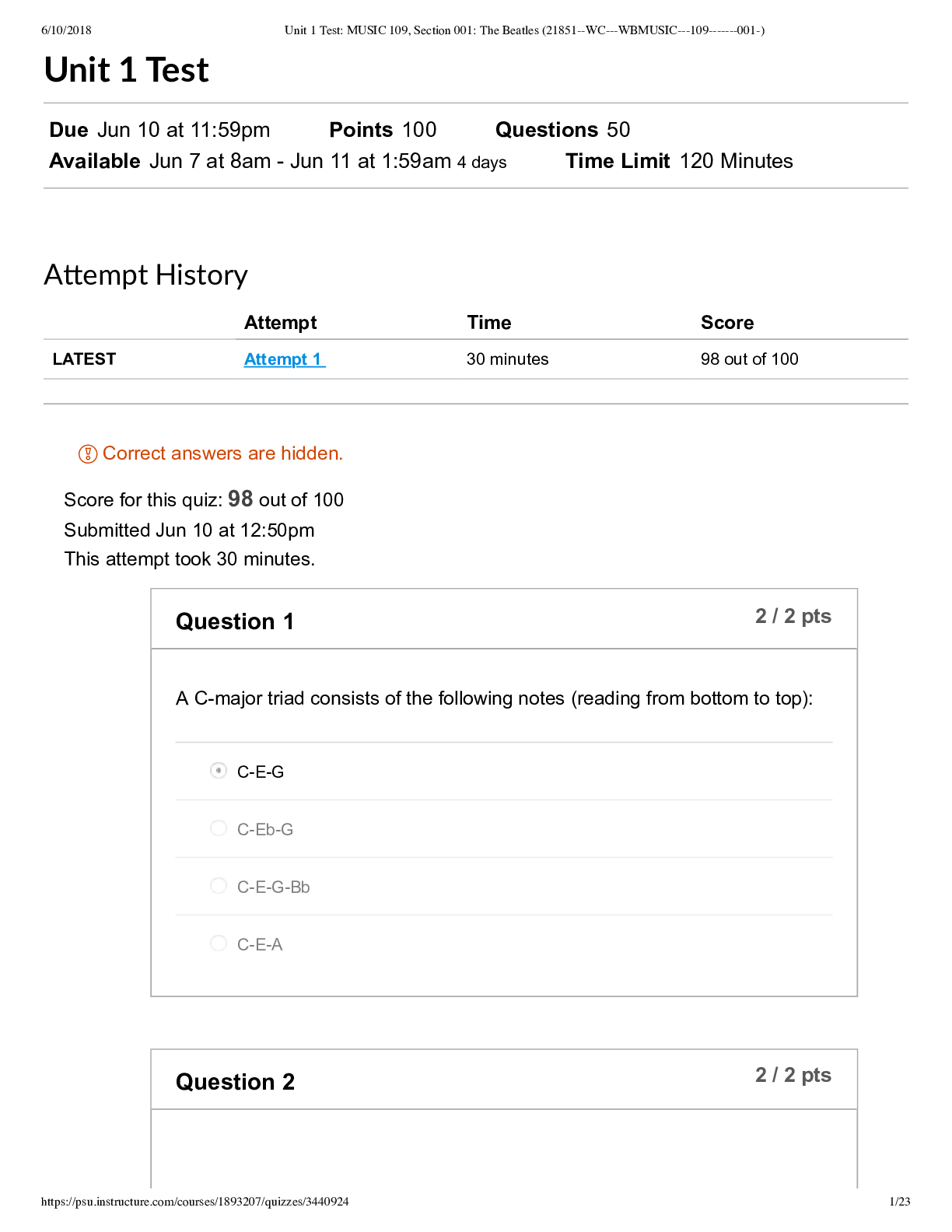
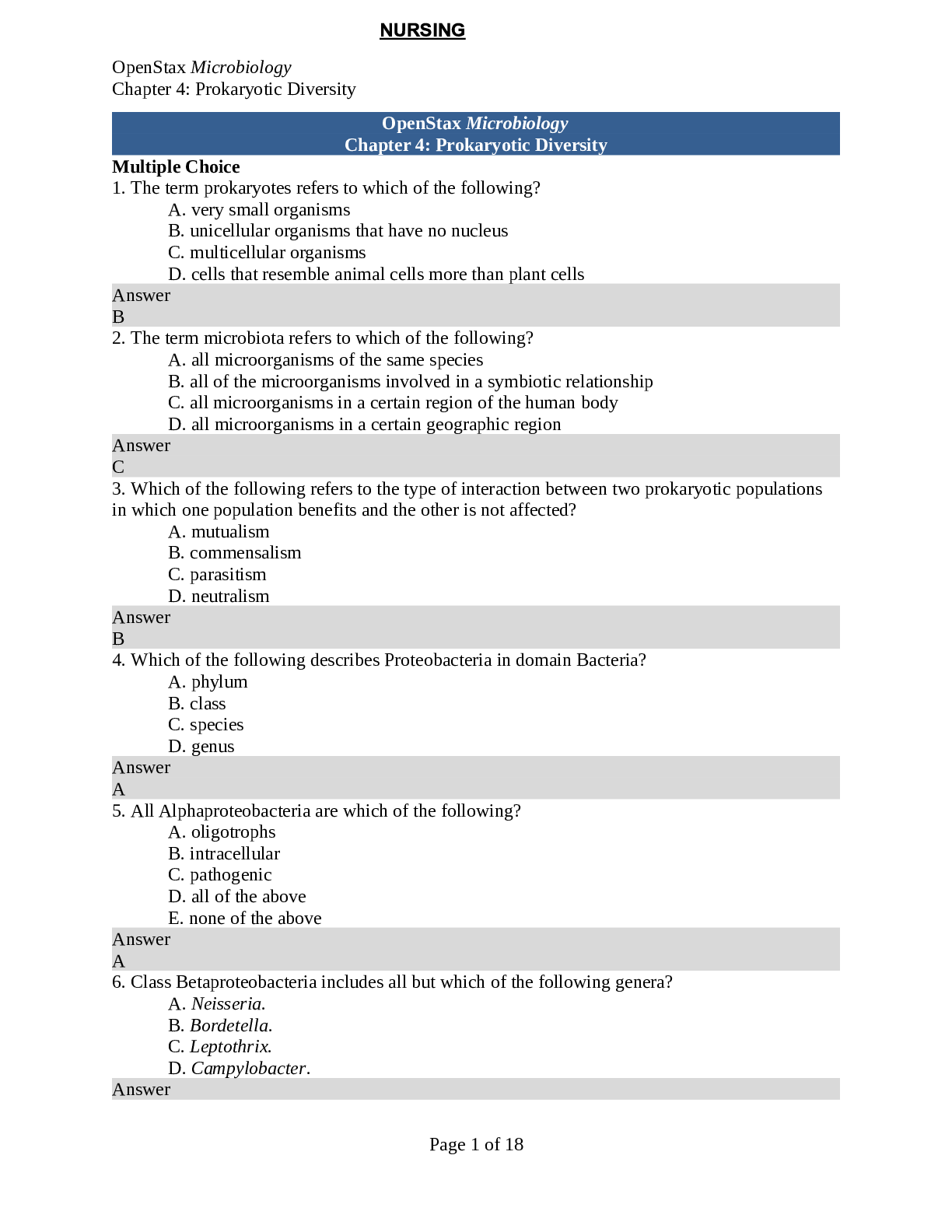

.png)
.png)
.png)
.png)
.png)
.png)

.png)

